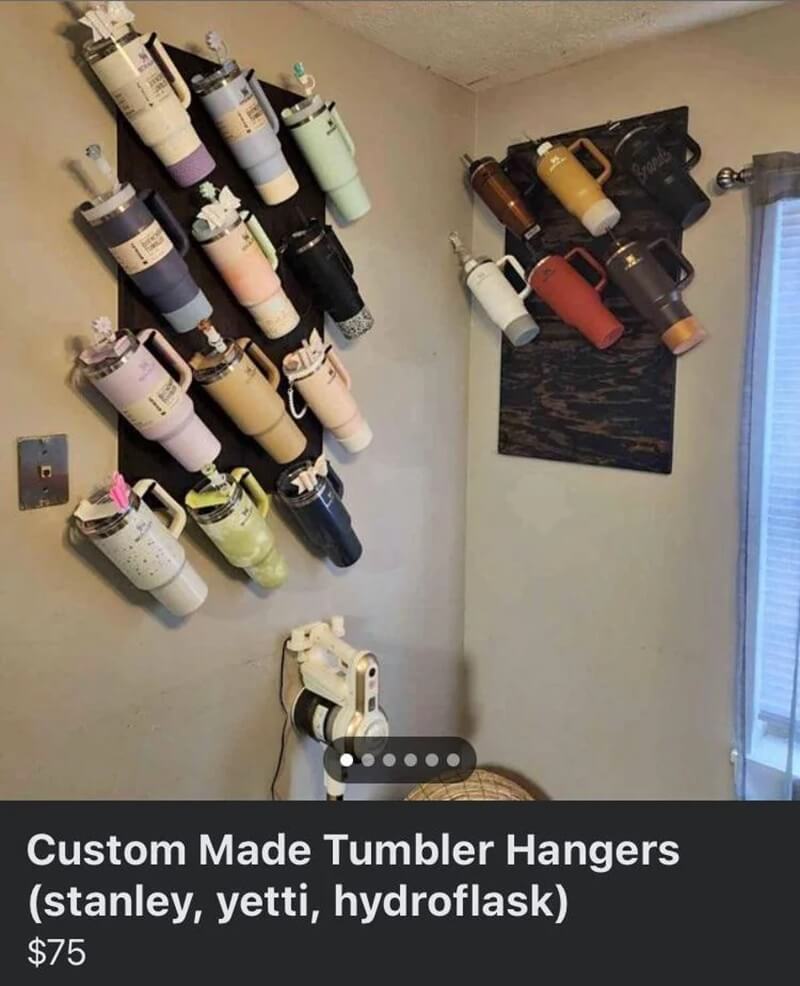Trend cycles can be a way to try new things, but they mostly lead to a ton of waste since most trends are fleeting.
Stanley Cups and other tumblers have been all the rage in recent years, causing stores like Target to put purchasing caps on new drops, as People reported. While reusable cups are a great way to reduce your waste and save money, the trend of collecting dozens of these items reduces the benefits to almost nothing.
One annoyed Redditor took to r/Anticonsumption to criticize a specialized product they saw for sale. The photo shows a collection of over a dozen Stanley cups hanging on the wall. At the bottom of the photo, a caption reads, "Custom Made Tumbler Hangers, $75."

It appears that as people collect these trendy tumblers, a new market for specialized storage has cropped up.
"Rampant consumption to the point to needing to make additional storage to hold them all," the original poster wrote.
Vox reported on the Stanley Cup craze, saying some of the draw is the company's longevity, as well as the cup's ability to keep drinks cold for 11 hours. Part of its branding is also likely an aesthetic choice: "Stanley's myriad colorways photograph well and look great on social media, which helps the brand assert dominance," Vox wrote.
Reusable water bottles are intended to be an alternative to wasteful single-use plastic bottles, ideally helping reduce waste. In addition, they help save consumers $1,300 a year on disposable water bottles. Investing in an insulated water bottle can prevent plastic waste from clogging landfills. However, reusable bottles must be used many times to glean the benefits.
According to the sustainability office at MIT, "If you used a reusable water bottle every working day for a month you would reduce its environmental impact per serving to a level that's below disposable bottles."
"Pick a bottle you love and stick with it – even if that means saying 'no' to a free bottle you're not going to use!" MIT further advised.
When we have dozens of reusable bottles and cups, they are less likely to have a positive benefit on our ecological footprint.
Folks on the subreddit agreed with this sentiment.
One person wrote, "How could anyone find this aesthetically appealing? I truly do not understand it."
Someone else commented, "It's ironic that a thing designed to be reusable and eco-friendly (reusable water bottles) becomes so wastefully mass-produced and basically trash."
Hopefully, these consumptive trends will take a nosedive and stop filling our landfills with unnecessary mass-produced items.
Join our free newsletter for easy tips to save more, waste less, and help yourself while helping the planet.









